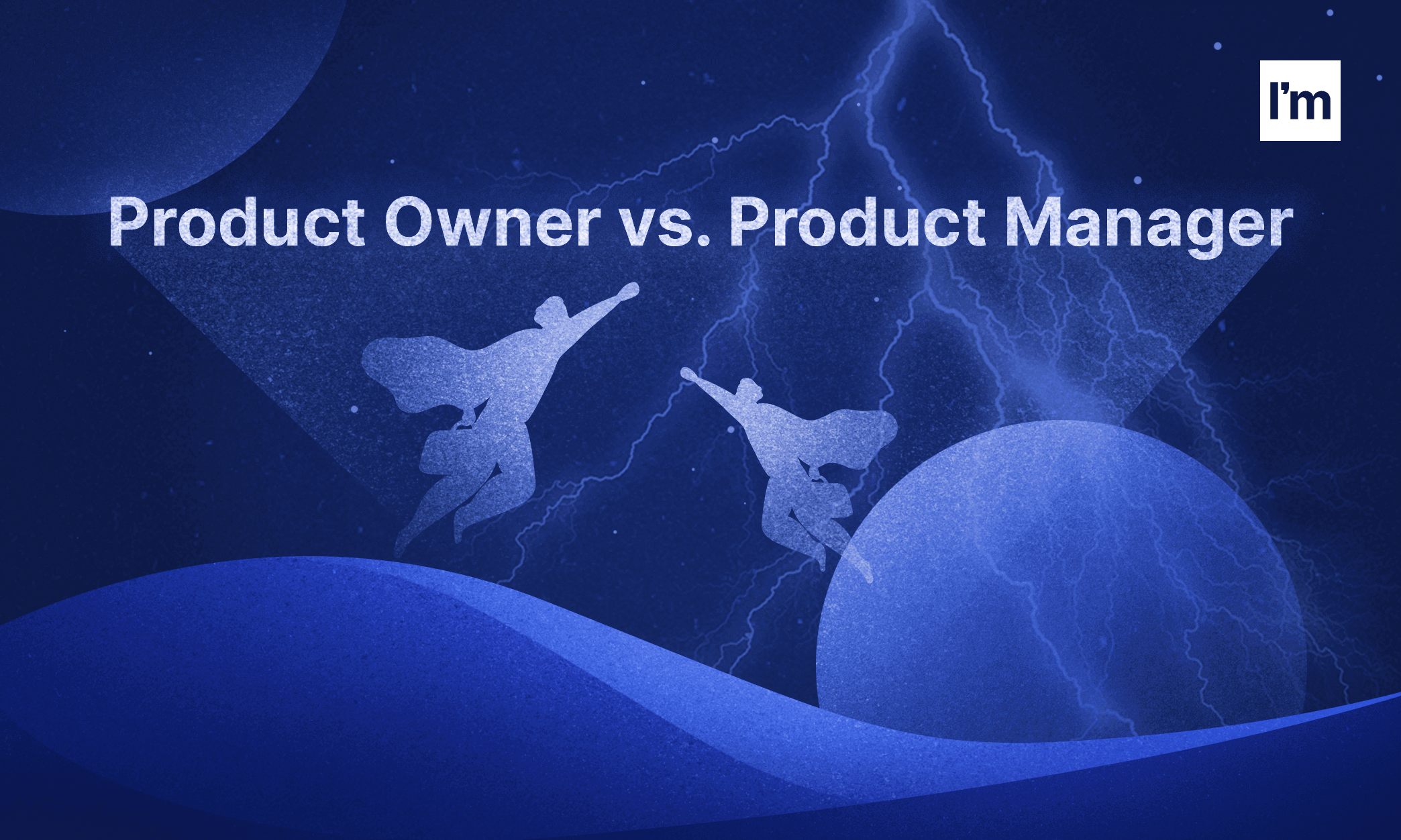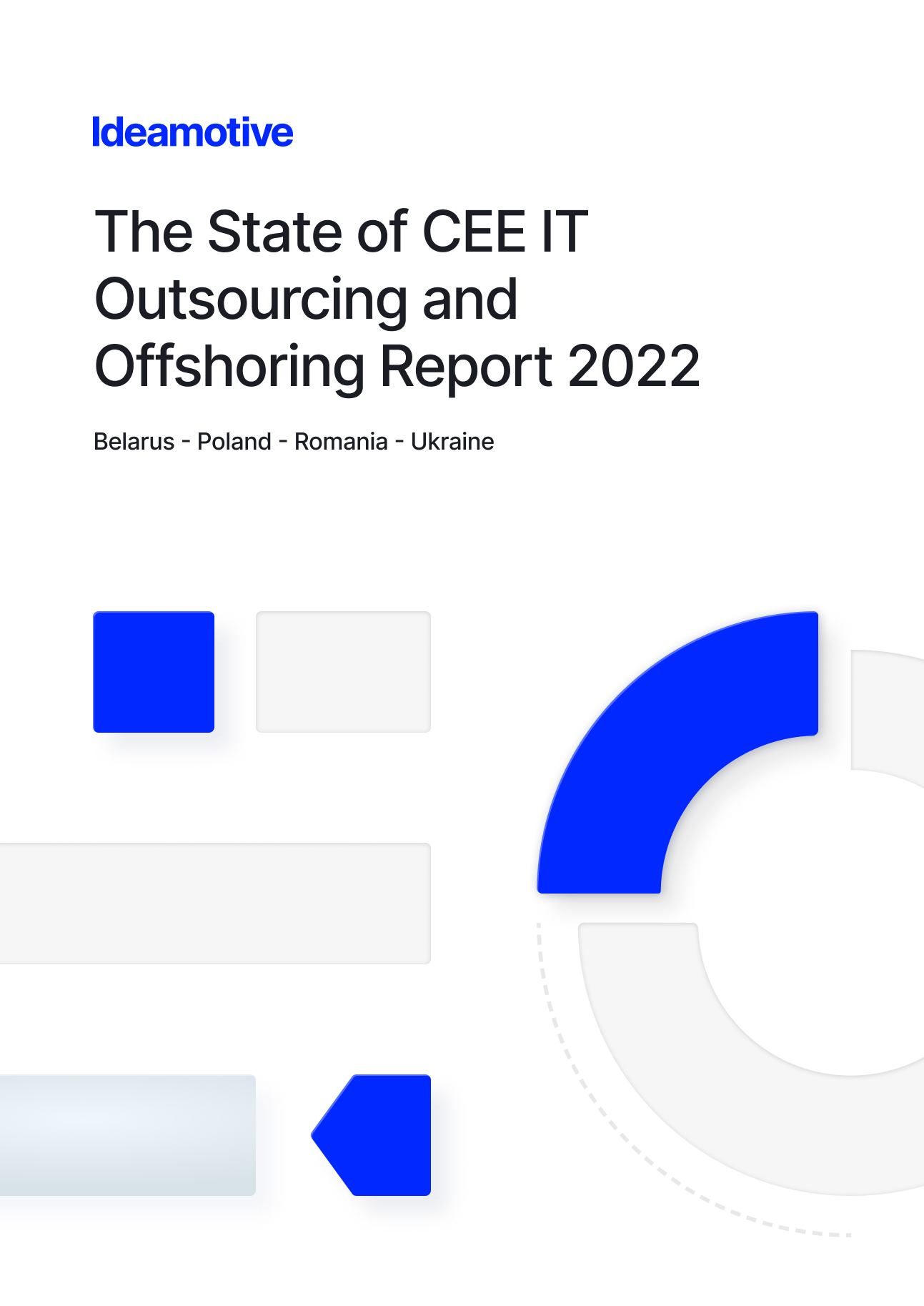The roles Product Manager and Product Owner are different, and we shouldn't confuse them with each other. However, due to naming practices, some people get really confused, when asked what's the difference between these two.
To understand the Product Owner vs. Product Manager dilemma, we need to dive (but just a little) into the history of these two terms. In this article, you will see that although they both care about the product, they focus on different aspects. It is the story of marketing vs production. Strategies vs Tactics.
But what exactly IS a product?
Before we dive into the world of Owners and Managers let's take a look at the product. In the old times, there was a distinction between a product and a service. A product was a material entity you could sell, buy, and transform. Service was an activity you would pay or get paid for. This distinction has never been entirely clear. For example, when you'd ordered a pair of shoes, would you pay for the shoes or the service provided by a shoemaker?
Today the landscape is far more complex. In the digital landscape the development of the Internet has changed the rules dramatically. You will encounter Software as a Service (SaaS), Platform as a Service (PaaS), or even Infrastructure as a Service (IaaS).
In the world of digital products and software development, a product is no longer tied to its tangible aspects. A product then is something that generates value to the customer. A web application, a blockchain system, a monitoring tool. You name it.
Who is the Product Owner?
Product Owner is one of the roles described by the SCRUM Guide. Scrum is an agile framework designed to solve complex problems and build customer-centered products with the highest possible value. Product Owner together with the Development Team and the Scrum Master they constitute a self-organizing team that aims to develop the most valuable product.
The Product Owner is described as one person responsible for Backlog management. It means that usually, the PO doesn't take responsibility for market introduction, sales, promotion, or long term analyses.
What does a Product Owner do?
It is important to state that the Product Owner's job starts with the kick-off and is done as soon as the product is released. According to the Scrum guide “the Product Owner is responsible for maximizing the value of the product resulting from work of the Development Team”.
How does he achieve the value maximization? The first thing is to gather and understand the customer's needs and then express them in the product vision. Then the Product Owner describes what the customer needs from the software. These user stories will tell the Development team what features are desired.
PO defines the product vision including not only customers' but also the company's and other stakeholders' needs. According to that vision, the PO will describe the value of that particular product. Then this vision should be clearly expressed within Product backlog items. The Product Owner takes also the responsibility for the deliverables. This is why creating the Backlog isn't enough. It needs to be managed throughout the development process, and that's the PO's role as well. Managing the backlog contains prioritization of needs (then ordering items accordingly), improving the backlog, and detailing user stories.
Other members of the Scrum Team will need and require the Product Owner to provide them with up-to-date information so that they can stay focused on their duties. That's why it's crucial for the PO to be a reliable source of valid information.
To fulfill all the duties, the Product Owner needs to participate in Scrum meetings including Stand-ups, Retrospectives, Demos, Sprint planning, and Sprint Review. This role requires direct work with the Development team on a daily basis. Participation in some events is obligatory while in the case of others it's one of the best practices.
Another Product Owner's role is to accept or decline the outcomes of every sprint and the whole development process.
All that to make sure that the product vision and customers' needs will be fulfilled.
How to become a Product Owner?
Many Product Owners are promoted internally. Usually, they had been members of the Development team before they got promoted. Popular roles on this path are Software tester or Business analyst. Going this way you already know Scrum, your company, and the industry. All three will be helpful in the role of the Product Owner.
Sooner or later you will see that you need to dive deeper into Scrum. Today you will find many solid courses conducted by respectable organizations. The list of Product Owner certificates is available on Scrum.org — the organization founded by one of the Scrum creators.
However, the most important thing is to learn Scrum principles, find your Scrum team, and develop your products the Scrum way.
What makes a great Product Owner?
First and foremost, Product Owners need to know Scrum. This is their Bible, and they must understand all the responsibilities assigned to the role of the Product Owner. Of course, the fundamentals of Scrum won't make the great Product Owner. However, without that basis, it’s impossible to reach that greatness either. So, what it takes to become a great Product Owner?
Keep in mind that it is a customer-oriented role.
Product Owner should pay attention to customers' needs. But not only the official ones. PO needs to dig deeper and truly understand customers’ pain points. Then, with the understanding of users, PO also needs to explain that to the Development Team. They will need a precise description, how their solutions may (or may not) suit the needs of customers. Moreover, the Product Owner has to know when to stop the team from exceeding the scope of your product.
To do that, the PO’s need to see the bigger picture and know the plan. Some of these things are beyond their responsibility, but a thorough understanding will let them prioritize the product requirements. Their communication skills will be crucial here so that they learn as much as possible from all the stakeholders and tell them what is and what isn't possible. However, it will be impossible if PO’s don't know their stakeholders well.
This leads us to conflict management and leadership skills. Product Owners will encounter conflicts, and very often their soft skills will decide if the outcome is going to build value for the customer. Being a kind of leader, PO will have to decide what is important and should be included in the final product, and what is irrelevant to the value as seen by the customer.
The success of a Product Owner is based on the product, but not in the sense of completing all the tasks from the Backlog. Product Owner will be successful as much as the final product will meet and exceed your customers' needs.
Who is the Product Manager?
The alternative Product Owner vs. Product Manager is not straightforward. While the Product Owner is clearly defined by SCRUM guidelines, the Product Manager has many definitions.
According to Collins English Dictionary, Product Manager is
“someone who researches, chooses, and develops the products of a company or organization”.
An article published by McKinsey & Company starts with the following passage:
“Product Managers are the glue that bind […] engineering, design, customer success, sales, marketing, operations, finance, legal, and more. They not only own the decisions about what gets built but also influence every aspect of how it gets built and launched.”
In fact, every company can freely decide what a Product Manager means to them. There is no “Product chamber” that can enforce this or that definition. You will see that by checking job descriptions. There are however some common traits of almost all Product Managers.
Usually, they deal with product development, but also product business justification, marketing forecasting, pricing, etc. It's also worth mentioning that unlike Product Owners, Product Managers are involved in marketing analyses, product development, and all stages of the product life cycle, from introduction to decline.
At the very beginning (like the first half of the 20th century) the role of the Product Manager had been closely related to Marketing. Later we witnessed a shift towards the product-oriented approach. Today we can talk about a wide range of responsibilities and perspectives from marketing, to product to customer-centered. As the major shift in the way companies deal with their products has taken place, Product Managers have incorporated techniques of lean management, design thinking, and agile development. However, the way you mix them depends heavily on the particular approach chosen by your company.
What does a Product Manager do?
The lack of a universal definition of the Product Manager role causes another difficulty in describing what such a Manager actually does. Companies represent various approaches towards both product development and a Product Manager's role in it. The exact idea about how to organize product development depends on:
- product type — it may differ for software, various services, and material products;
- industry — traditional automotive companies' strategies are different to software houses' practices;
- size of the company — start-ups usually require Product Managers to be more universal;
- organizational culture — is the company divided into silos or flattened and more agile?
Anyway, many Product Managers would conduct or order market analysis to track the competition and understand customers and market trends. Often they are responsible for the creation of a roadmap connecting the needs and influences of all inside and outside stakeholders. Particularly marketing, sales, development team, C-level officers, competitors, and future customers.
There is one, very important reason, why the Product Manager deals with such a wide variety of topics. PMs are responsible for the creation of value for customers, but also for the business success of the product and its financial outcome. Sometimes it means that a Product Manager will be behind the marketing strategy as well.
In many cases, Product Managers will be in charge of all teams engaged in one or more products. They will make use of the design team, research team, development team, marketing team, sales team, etc. Then they need to take care of the budget and schedule too, in order to ensure a decent revenue for the company.
Sometimes, a Product Manager's role may not end with the product's introduction into a market. He or she may be involved in customer support and after-sale service since nobody knows the product and ideas laying behind it.
How to become a Product Manager?
Becoming a Product Manager takes getting experience in various fields ranging from marketing to team management to problem-solving and decision-making. You can take a course in order to learn the basics, but nothing will replace a rich experience.
Then there are two main ways to gain this practice. One goes by the paths available in your company. You engage in product associated activities and apply for the roles responsible for some aspects of product management. Helping your company solve its problems you will learn lots of stuff and gain a reputation.
The other way is to run your own project as a side hustle. This path gives you a rare opportunity to take full responsibility for all elements of your product's management. It will be an incredibly valuable experience. This time it is also important to keep a record of your actions, challenges, and successes. Later you will be able to show your future employer your approach and how you tackle problems.
What makes a good Product Manager?
First and foremost, the experience. Only practice in developing products and their market implementation will let you become a good Product Manager. Usually, it means work in a particular industry with various products and companies. It doesn't mean that you absolutely cannot switch industries. Wide horizons have unprecedented value. However, you need to understand internal and external conditions, and they vary depending on industry and branch. As a Product Manager, you will find thorough knowledge of your tech stack incredibly worthy. This will let you know your possibilities and limitations.
A successful Product Manager needs much more knowledge about the market and business environment than a Product Owner. Product Manager should develop the ability to evaluate the situation on the market (e.g. customer interviews, competition analysis). Then it's crucial to master resource allocation skills. Also, communication with various types of stakeholders (e.g. business v. technical language). There are many revenue models, a Product Manager should know and be able to apply as well. The best Product Managers hone their skills and improve them over the years and years of practice in real-life business situations.
Who do you need for your project?
The aim of our comparison of Product Owner vs. Product Manager is to help you choose what's right for you. Sometimes you will need one of them, and sometimes both. Or someone, who can handle both roles at once.
If you want to incorporate an Agile approach in your company and build your product according to Scrum, then you must employ a Product Owner. It's not a Scrum project without Scrum master, or Product Owner, or the Development team. However, it doesn't mean that you can't employ a Product Manager. If you need someone who will lead your product from the very idea, to design, to development and market introduction, and even further, then an experienced Product Manager will be helpful. Furthermore, you may need a specialist to care about multiple products, then a Product Manager will be the right person.
Summing up, hiring a Product Owner is the result of choosing the Scrum. Waterfall projects can still go on with the leadership of a Project Manager, but Scrum projects cannot. The decision to hire a Product Manager, on the other hand, depends on the structure and culture of your company. Anyway, no matter which specialist you need, you will find them in our talent network. Contact us to find those who will fit your industry, technology, and company culture best.









